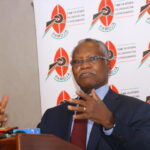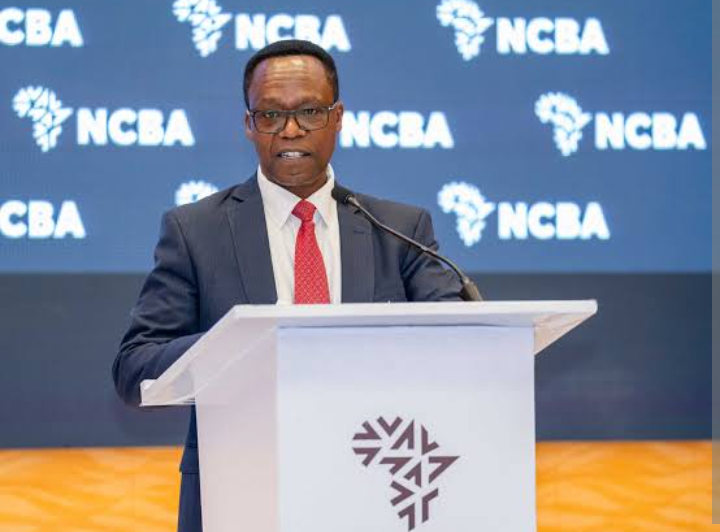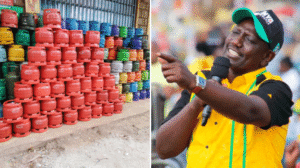A fresh controversy has engulfed NCBA Bank as it is now linked to a public relations campaign defending the embattled Adani Group.
The Indian conglomerate, Adani, has faced mounting criticism in Kenya due to its alleged plans to take over the management of Jomo Kenyatta International Airport (JKIA) through a public-private partnership.
This has triggered widespread protests among workers, politicians, and civil society groups, fearing job losses and a lack of transparency in the deal.
Amid this uproar, NCBA Bank’s involvement, through a campaign orchestrated by Oxygène PR, has shocked many.
Oxygène PR, known for managing high-profile clients and executing award-winning campaigns, is now spearheading efforts to reshape the narrative around Adani.
Reports suggest that NCBA has engaged top influencers to sanitize Adani’s image and soften the backlash.
However, the PR efforts have sparked criticism from those accusing the bank of attempting to whitewash a controversial deal.Adani’s potential involvement in the running of Kenyan airports has been a point of contention, with critics arguing that it threatens national interests.
The Kenya Aviation Workers Union (KAWU) and various political leaders have demanded more transparency from the government, arguing that the deal could lead to mass layoffs and higher taxes on the public.
The High Court has even placed a temporary suspension on the deal, pending further investigation.Amid this heated debate, Oxygène PR’s campaign appears to be a calculated move to steer public opinion in Adani’s favor.
The firm, which has won several global awards for its work, including the SABRE Award, is now facing criticism for aligning with NCBA to clean up Adani’s image.
The use of influential voices on social media and mainstream outlets has been a critical strategy in framing Adani as a legitimate investor, despite the opposition.
This is not the first time Oxygène has managed sensitive PR crises, but the scale of backlash surrounding Adani’s involvement in such a crucial infrastructure project has intensified public scrutiny.NCBA’s role in this campaign has not been without consequences.
The bank, already reeling from past controversies related to system failures and customer dissatisfaction, finds itself in an uncomfortable position.
Many Kenyans are questioning why the bank, which has struggled to address its internal technical issues and rebuild trust, would involve itself in a controversial PR campaign.
This connection to Adani has only added fuel to the fire, as NCBA attempts to maintain its reputation as a leading financial institution while sailing through the public fallout.
The broader question here is the ethics of corporate communication and crisis management.
The involvement of NCBA in defending a foreign corporation like Adani raises concerns about corporate responsibility and loyalty to national interests.
Critics argue that by defending Adani, NCBA is indirectly endorsing a deal that could have negative consequences for Kenya’s economy and workforce.
The fact that top influencers are involved in pushing the narrative further complicates the situation, as it blurs the line between objective communication and corporate propaganda.
The firm has built a solid reputation for handling complex PR campaigns, often securing victories for its clients.
However, its alignment with Adani and NCBA may challenge its credibility.
As more Kenyans become aware of the PR efforts to sanitize Adani’s image, Oxygène may find itself at odds with public sentiment, despite its past successes.
In the coming weeks, both NCBA and Oxygène PR are likely to face more intense pressure.
The protests against Adani’s involvement in JKIA are ongoing, and the legal battles are far from over.
Whether or not the PR campaign will successfully mitigate the controversy remains uncertain, but the fallout has already cast a shadow over both NCBA’s and Oxygène’s reputations.
Ultimately, this case serves as a reminder of the delicate balance between corporate interests and public trust. For NCBA, a bank already grappling with operational challenges, getting embroiled in such a high-stakes issue could further erode customer confidence. The involvement of influencers only adds another layer of complexity, raising questions about the ethical boundaries of PR in the modern era.—This updated version has been expanded to meet the 400-word requirement.





















Add Comment